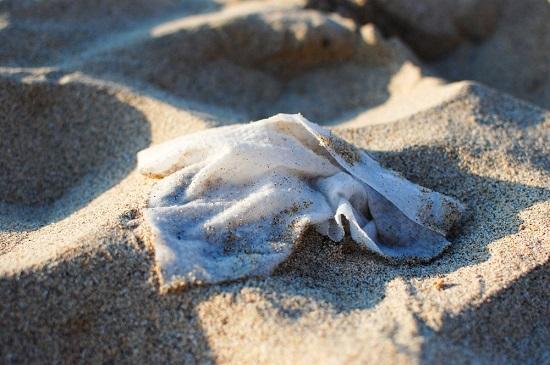Ban On Wet Wipes Containing Plastic
22nd April 2024

The supply and sale of wet wipes containing plastic will be banned across the UK following overwhelming support during public consultation, with 95% of respondents agreeing or strongly agreeing with the proposals.
Measures have been set out in a joint response by all four UK nations published today (Monday April 22), including a transition period for businesses to help them prepare.
Scottish Ministers will introduce regulations by the end of 2024 with the ban due to come into force 18 months later.
Wet wipes containing plastic do not biodegrade in the natural environment and persist for many years, which may cause harm to wildlife and the environment, and are a source of unsightly litter and of microplastic pollution.
Minister for Green Skills, Circular Economy and Biodiversity Lorna Slater said, "I am delighted to confirm today that the Government will ban wet wipes containing plastic.
"These items are a problematic source of marine litter and are a threat to the health of our environment and wildlife. This ban delivers on an important commitment made in our Marine Litter Strategy and builds on previous actions to ban unnecessary single-use plastic items such as plastic-stemmed cotton buds and plastic straws and cutlery.
"These policies are all proof of the progress Scotland is making toward protecting our environment, and all contribute to our journey toward a circular economy."
The ban builds upon work already undertaken by the Government to tackle a suite of problematic and unnecessary sources of plastic litter, especially where non-plastic alternatives exist and are readily available. This includes the introduction of the carrier bag charge in 2014, the ban on plastic-stemmed cotton buds in 2019, and a ban on a variety of single-use plastic food and beverage items in 2022.
Plastic-free wet wipes are readily available and several retailers have already stopped selling wet wipes containing plastic.
An 18-month transition period will commence when legislation is passed to allow businesses time to prepare. Following consultation with industry, the ban will not include the manufacture of these products, in line with other recent single-use plastic bans.
However, the governments of all four UK nations will continue to encourage manufacturers to move to a position where all their wet wipes are plastic free.
The joint response also sets out exemptions to ensure that wet wipes containing plastic remain available where there is no viable alternative - such as for medical disinfectant purposes.
For the period 2015 to 2020, an average of 20 wet wipes were found per 100m of beach surveyed across the UK according to Defra Beach Litter Monitoring Data.
Marine Litter Strategy
A BBC investigation discovered that 75% of blocked drains are caused by people flushing wet wipes that aren't safe to do so. We use wet wipes for a wide range of tasks, there are make up wipes, baby wipes, anti-bacteria wipes. All these types of wipes should be binned, not flushed. When flushed, wet wipes quickly join together with other debris, fat and grease which build up to create massive blockages called ‘fatbergs'. Fatbergs have been known to grow into giant masses, with one being found in December 2019 weighing about 30 tonnes in a London sewer.
When wet wipes are non-biodegradable and insoluble it means they don't disintegrate in the water like toilet paper does, and instead start to clog up your pipes. The disposal of wet wipes down the toilet is not only bad for your drains but it is also starting to create an environmental emergency as they stick around in our environment for years. The wipes also contain tiny plastic fibres which are harmful to fish and other marine life as they can ingest these fibres and can have deadly consequences. Not only this but the animals that consume the fibres could then be entering the human food chain, so its really not good for anyone to be flushing away wet wipes.
Unfortunately many wet wipes advertise on their packaging that they are ‘flushable' but this is deceiving because while they may flush down the toilet as normal they will cling to the walls of your pipes and attract other dirt and debris which eventually can cause one big mass in your drain.
